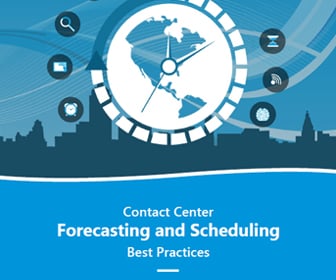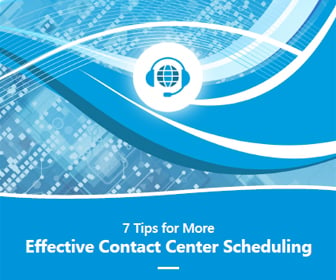Workforce Management Featured Article
What Makes a Great Contact Center Agent?
It’s a question many companies would pay a lot for a definitive answer to: What makes some contact center agents so successful, cool under pressure and able to turn angry customers into loyal ones? Is it friendliness? Empathy? Great training? Good communication skills? How can it be sustained and/or spread to all agents in the contact center?
Different companies and industries will have different needs, of course, but great contact center agents will have a number of attributes in common regardless of the organization they service. They’ll have basic competence, for starters: the skills and abilities needed for the job, technical knowledge of the product or services and the ability to easily use the call center support technologies and databases. Much of this can be transferred to agents through robust training, though all agents need to will and determination to apply the knowledge. Agents also need to have a sense of urgency or expediency: putting a customer on hold and taking “as long as it takes” to find an answer will impress neither the customer nor the manager who must keep track of average handle time. But it’s less tangible personality traits that really determines what makes a great agent. According to Nikita Arora blogging for Ameyo, ambition and dedication to career betterment is also an important factor.

“An employee should be obsessed about being career-oriented,” wrote Arora. “Their craving to learn new technologies and the desire to improve themselves helps them getting into the good books of their highest designated employers and are more likely to get promoted.”
Even softer in the “soft skills” department are factors like empathy and patience. These really can’t be cultivated, but should be sought after in the recruitment and hiring processes.
“Patience, as they say, is a virtue, and one that deals with customer service issues must surely have it,” wrote Arora. “Responding to emails and managing customer queries simultaneously is not a child’s play. A good agent keeps calm even when someone is yelling at them over the phone or when they have a chatty customer on the other end of the line who simply won’t let them get a word in edgewise. Keeping it cool throughout and not letting the frustrated callers’ affect them personally will help the agents go far in the industry.”
On the flip side, an agent may possess all these positive attributes and skills, but without the right technologies to support them, they simply won’t be able to apply them. Agents need to have the right information in an easy to access place. They must be scheduled properly so the contact center isn’t overstaffed or understaffed. They should be moved onto different media – phone in the morning, e-mail in the afternoon – if they possess the right skills for these channels. And they should have the ability to move between media for a customer who uses more than one channel to reach out.
To truly succeed, it’s vital for companies to have the right mix of people and processes in place, and enough time and training to be able to do their jobs. Contact center work isn’t transient work, and it shouldn’t be treated as such. “Any warm body who can answer the phone” – once the only requirement many companies had for filling call center jobs – is a long, long way from being sufficient today. Likewise, technology that helped manage the workforce and the contact center five years ago is becoming…well…so five years ago.
Edited by Stefania Viscusi







